My name is Jill. I am a writer, social commentator, and weary capitalist. I have joined forces with The Village Market to discover the formula–the hows and the whys and everything in between. We want to go beyond the step-by-step guides and the impossibility of walking a mile in someone else’s shoes. We want to know what inspired the doers to choose those shoes. We want to know how they fit. We want to know how it feels to outgrow them.
An opportunity is a set of circumstances that makes it possible to do something, and support enables something to function or act. And while opportunity is often defined by its codependent relationships with chance and luck, support is an interdependent relationship with action and creation. Support holds us and lets us know it’s going to be okay after we finally break up with chance and choose ourselves instead. It both braces and embraces us as we learn to trust our knowing and what we’re here to do. It focuses on our future so we can learn to stay present in what must be done right now. We are our own opportunities and support is the expectation that we will believe that more and more all the time.
If you are a black person living in a world that has managed to steal both your knowledge and your knowledge of self–obsessively observing you with equal parts fear and curiosity–then support takes on an even more complicated meaning. If you are aware of the game at hand, you should both despise and desire capital. The need for it and the memory that you were once what you now seek haunt you. Your ancestors built the walls of the very institutions that now deny you entry beyond tokenism and PR wins. In this world, the phrase, “We all we got,” is somehow both comforting and unsettling. It is easy to mistrust support and see your community as your competition. And without trust, resources seem limited and opportunities seem scarce. But if we are our own opportunities, how can this ever be true?
More recently, collective economics is often discussed as mainstream solution, rather than alternative strategy. Buying black, circulating our dollars within our own communities, and weaponizing our purchasing power against the historical power of our own purchase is seen as both ethical and necessary. Is this a solution without flaw? Of course not. Is it inclusive and accessible–as any true movement must be? Well, this is where a broad definition of support becomes absolutely necessary.
The Village Market has a mission of supporting the sustainability of socially conscious, community-minded entrepreneurs and startups. They believe in and focus on our investment in each other and the future of the collective. And while The Village Market reminds us–more as a call to action than a monetizing catchphrase–that support is a verb, let us remember that “any English noun can be verbed, but some are more resistant than others” (Merriam-Webster).
Whether you’re an entrepreneur or a changemaker or a creative in any genre of journey, you’ve had to consider the role that support plays in your work. Often, that support can be an honest narrative. We search for the stories of those who have come first and done well. We want a formula for the how behind the outcome. Before we are sure of our own path, we may make the mistake of wanting to be like those whose stories inspire us. Once we know better, we simply want to do like them. We no longer worry about walking in their shadows. We worry about not walking in our own.
My name is Jill. I am a writer, social commentator, and weary capitalist. My knowledge is sustained on nothing more than a love of detail and observation, and a belief in the power of our individual and collective stories of wins, losses, and knowing. Of course, I consider these stories to be support, and not a single dollar was circulated in that description. I have joined forces with The Village Market to discover the formula–the hows and the whys and everything in between.
We want to go beyond the step-by-step guides and the impossibility of walking a mile in someone else’s shoes. We want to know what inspired the doers to choose those shoes. We want to know how they fit. We want to know how it feels to outgrow them.


